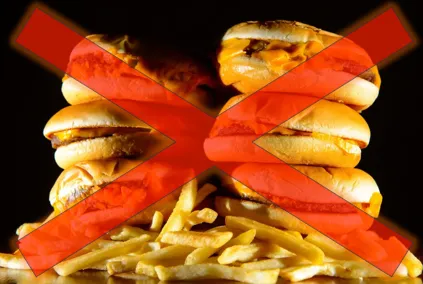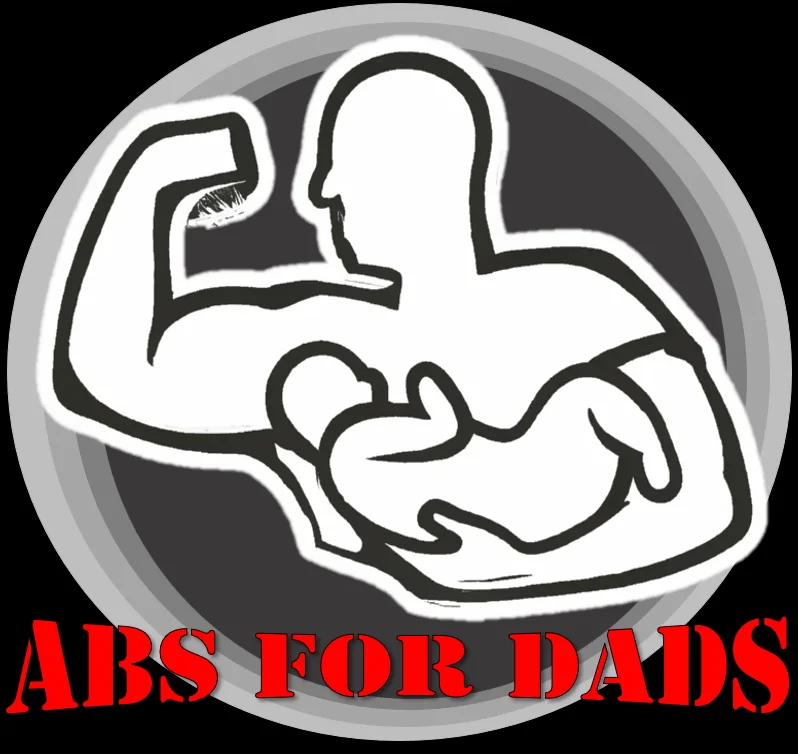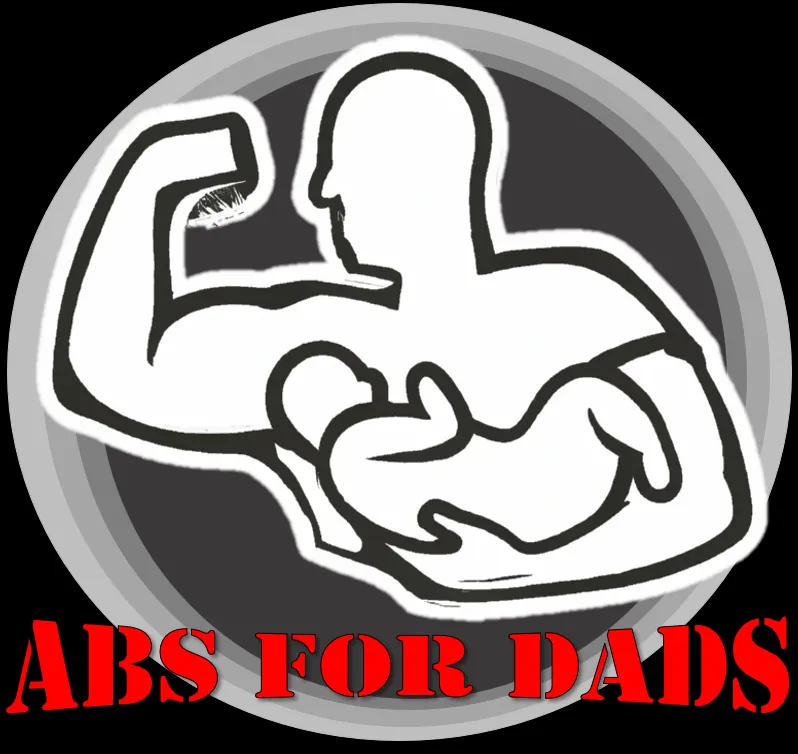THE BLOG
The Ultimate Fitness Blog for Dads
TOPICS
Welcome to Abs For Dads, your premier resource for time-efficient fitness solutions tailored for busy fathers. Discover practical tips and expert advice to transform your health and fitness, seamlessly integrating into your demanding schedule.

Fitness
Explore our curated fitness tips and routines designed to maximize efficiency for the modern dad. Whether at home or the gym, our time-sensitive workouts ensure you achieve optimal results with minimal time investment.

Nutrition
Unlock the secrets of hassle-free nutrition with our easy-to-follow meal ideas and delicious recipes. Abs For Dads empowers you to make informed food choices that align with your fitness goals, promoting vitality and strength.

Lifestyle
Enhance your overall well-being with our lifestyle hacks. From stress management to effective time optimization, our blog covers a spectrum of topics ensuring you achieve success in your fitness journey.

Crap Gains: Know How to Avoid Bad Protein That's Making You Fat
By now, we at Abs For Dads have made it no secret that we’re total fanboys for protein. We already know protein is crucial for building muscle and managing weight. But where most scrawny teenagers trying to get huge and uninformed fitness enthusiasts get it wrong is parsing the good from the bad. Yes, consuming the wrong kinds of protein can be a recipe for disaster. Picture this: you're chowing down on what you think is a healthy protein-packed meal, only to find out it's actually packed with bad protein. It's like putting way too much air in your tires: you’ll be in for a harsh ride and it may lead to blowouts. In the world of nutrition, not all proteins are created equal. So if you're ready to separate the good from the bad and avoid falling into the "bad protein" trap, hang around and we’ll review the often confusing landscape of protein choices.
Understanding Good vs. Bad Proteins
What Makes a Protein "Bad"?
Bad protein can be characterized by its high levels of saturated fats, sugar, cholesterol, and additives. These proteins often come from processed meats like sausages, hot dogs, and bacon. They contain harmful chemicals that can lead to health issues such as heart disease and obesity.
Consuming bad protein in excess can also lead to an imbalance in the intake of essential nutrients like omega-3 fatty acids. Omega-3 fatty acids are crucial for brain function and overall well-being. When opting for bad protein sources over healthier options, individuals miss out on these vital nutrients.
Omega-3 fatty acids are found in foods such as salmon, chia seeds, and walnuts. These healthy fats play a serious role in reducing inflammation and lowering the risk of chronic diseases like heart disease. Bad proteins, on the other hand, lack these essential nutrients due to their processing methods or poor-quality sources. Getting in more omega-3 rich foods into your diet and minimizing the consumption of bad proteins is critical for maintaining optimal health. A good start to fixing your style of protein intake can begin with making good choices about the types of protein you’re consuming daily.
Healthiest Protein Sources for Muscle Gain
Optimal Sources
Okay, so maybe calling them bad protein is a misnomer. What we’re really targeting here is bad foods that happen to have protein in them, but for the sake of simplicity we’ll stick with it.
So we know that it's essential to opt for healthier alternatives like lean meats, fish, eggs, dairy products, and supplement those with plant-based options. All of their value comes from the growth factors associated with amino acid profiles while keeping your diet balanced. In this sense, there is a hierarchy of good versus better proteins.
Lean meat is far and away the most ideal source of quality protein in the muscle building department. With these types of foods, you not only introduce a very complete profile of muscle-building amino acids, but you also provide your body with a great deal of nutrient density and bioavailability. This means that you’re giving your body alot of what it needs in a smaller package, and that you’re actually able to digest it so you can use all of that stuff. Remember, you want your food to work for you, especially after physical activity.
Mixing and matching where your healthy protein comes from can also go a long way in helping keep a balanced diet. For instance, including things like low-fat and low-sugar beef jerky, Greek yogurt without added sugars, and different types of healthy nuts in your meals not only adds micronutrient diversity but also contributes healthy fats and proteins. Almonds, peanuts, and cashews are awesome choices that can be easily incorporated into your daily snacks or meals while ensuring that you’re still meeting a high protein intake throughout the day outside of snacks.
Plant-Based Options
Plant-based proteins are kind of a mixed bag based on your fitness goals. When you look at proteins like lentils, chickpeas, quinoa, and tofu, they do offer abundant amino acids without some of the drawbacks associated with certain animal-derived sources. But keep in mind that even despite their high ratio of protein, plants have incomplete amino acid profiles.
Don’t take this as an excuse to shy away from eating plants: EAT YOUR VEGETABLES. The point we’re making here is that plants offer an insanely good amount of vitamin and mineral complexity that your body needs to operate appropriately. Despite that, they should play a supplementary role in protein-consumption. Your robust varieties of protein will be derived from animal products and should be paired often with vegetables.
Incorporating these types of protein sources into your daily meals ensures you're providing yourself with the nutrients you need for optimal body function without sacrificing other aspects of a well-rounded diet. They are versatile ingredients that can be used in various dishes from salads to stir-fries to compliment your high-protein diet. So don’t shy away from eating these on a very regular basis.
Evaluating Protein in Chicken, Eggs, and Salmon
Understanding Bad Protein
If meat is the king of protein, and protein is essential for a healthy diet, then it must be vital. However, as we said, not all sources of protein are created equal. This typically refers to proteins that come with high levels of saturated fats or cholesterol. For example, certain cuts of red meat can be considered bad proteins due to their high saturated fat content. It’s all about the breakdown of nutrients in that food. Check out this nutrition label for one slice of bacon. It’s got over twice as much fat as protein, and 5 grams of it comes directly from saturated fat. That’s 160 calories for just one slice. Who only eats one slice of bacon at a time? And at 6 grams per, that’s not much protein to brag about.

You know it’s bad, I know it’s bad. So what’s the plan? Look, I’m not saying shun bacon from your diet. I too acknowledge it’s amazing. Maybe in the future, give that package a turn and see what’s going on with that label before you buy and see if there’s a slightly better version right next to it.
With these types of bad protein, you’re also looking at a lot of excess sodium. High sodium further exacerbates the risk of hypertension, or high blood pressure. High blood pressure is a major factor in the development of heart disease as it puts a strain on the heart and arteries (more on heart disease in a minute). At the end of the day, balance the intake of good and bad proteins in your diet. Opting for leaner cuts of meat or going with some plant-based protein sources can help reduce the consumption of bad protein.
Identifying Good Proteins
On the other hand, eggs and salmon as sources of protein, are generally considered good proteins. These foods provide essential amino acids without excessive amounts of unhealthy fats or cholesterol.
Chicken breast is a popular choice for individuals looking for a lean source of protein without an overload of unhealthy components. Similarly, eggs offer a complete package with high-quality protein while being low in saturated fat and containing various vitamins and minerals beneficial for overall health. While eggs and salmon both contain fat, the majority of this breakdown comes from your healthy fats. Salmon is rich in omega-3 fatty acids which promote heart health while still providing quality protein.
Avoid Protein Sources with High Fat
We know bad protein’s out there. Let’s talk about what forms it can come in. Consuming bad protein sources high in fat can contribute to weight gain. Foods like fatty cuts of meat and full-fat dairy products are examples of protein sources that can be high in fat. When men regularly consume these types of proteins, they may inadvertently increase their calorie intake, leading to weight gain over time.
High-fat protein sources can also lead to the accumulation of excess body fat. This is because fats are more calorie-dense than carbohydrates or proteins, so consuming a diet rich in high-fat proteins could result in an increased overall caloric intake, contributing to weight gain and potential obesity.
Effect on Cholesterol Levels
The consumption of bad protein with high levels of fat can have detrimental effects on cholesterol levels, and with heart disease as the leading cause of death in the United States, it’s about time we start paying attention. Diets unnecessarily high in saturated and trans fats may raise LDL (low-density lipoprotein) cholesterol levels – that’s the bad kind. Increased LDL also increases the risk for heart disease and stroke. For example, processed meats like sausages and bacon contain significant amounts of unhealthy fats that can elevate cholesterol levels when consumed regularly.
Some plant-based sources such as coconut oil and palm oil are also high in saturated fats, which can have similar negative effects on cholesterol levels when used as primary cooking oils or incorporated into food products. Instead, shoot for oils with healthier fatty breakdowns, like avocado oil or non-virgin olive oil.
Avoid Protein Sources with High Sugar
Consuming bad protein sources high in sugar can contribute to weight gain. When we eat protein that's loaded with sugar, the body typically ends up storing the excess sugar as fat. This leads to an increase in overall calorie intake, which can result in weight gain over time. To make matters worse, when we eat a lot of sugar, we actually tell our bodies to turn off its ability to know its own appetite. While things like flavored yogurts and certain protein bars contain a lot of added sugars, sugary drinks (I’m looking at you, coke) are about the worst offenders that may sabotage your efforts to maintain a healthy weight.

Eating excessive amounts of sugar-laden protein can lead to unwanted pounds, liver issues, and diabetes. Wilford warned you fools about diabetes.
The high sugar content not only adds empty calories but also triggers insulin spikes, promoting fat storage rather than burning. It's like trying to swim upstream while carrying a sack of rocks - it just makes everything more difficult.
Overall Health Implications
The consumption of unhealthy protein sources doesn't just affect heart health; it can have broader implications for overall well-being. In addition to increasing the risk of heart disease and high blood pressure, these proteins may also lead to weight gain due to their calorie-dense nature. Excessive weight gain contributes to a range of health issues such as diabetes and joint problems. And we won’t even go in depth on the correlation between a poor diet and the heightened risks of cancer.
On top of that, diets rich in unhealthy proteins often lack essential nutrients that are crucial for maintaining optimal health. When guys rely heavily on bad protein sources like fast food burgers or fried chicken tenders, they miss out on the important vitamins and minerals necessary for bodily functions. Especially if you have any type of fitness goals. When you eat low-quality protein like these, your body may not feel as satisfied, leading you to consume more calories overall. The reason why is that additives and artificial flavorings have the insidious ability to numb our perception of fullness. Fast food companies don’t want you ordering their smallest item al a carte, they want you to supersize that combo meal. And they know you can finish it all, plus an ice cream cone. So be aware of improv “cheat meals” or convenient options because you’re low on choices, because chances are, you’re doing a lot more to get in the way of better health when you go that route. There’s a place for a cheat meal now and then, and busy dads only have so many options to go with in the first place - just be mindful of how many of these foods work against you.
Avoiding Low-Quality Protein Powders and Dairy Pitfalls
Understanding Bad Protein
Now, you might think, “well, if I can’t have a burger, I’ll just have a protein shake and a bar for lunch.” Sorry, you have to watch out for those too. Some protein powders and dairy products can be considered bad proteins due to their low quality or potential health risks. These low-quality options may contain added sugars, artificial flavors, and other unhealthy additives that counteract the benefits of consuming protein. We have enough artificial crap in our diets as it is, keep an eye out for stuff that’s loaded full of additives. As a rule of thumb, pay attention to how food makes you feel after you eat it.
Consuming bad protein can lead to various health issues such as digestive problems, inflammation, and weight gain. For example, some dairy-based protein powders contain high levels of lactose which can be uncomfortable for guys who are lactose intolerant. The same goes for gluten. Do I think gluten is bad, no not really. But many men will notice that they deal with inflammation, bloating, sluggishness, and other annoying stuff when they consume gluten or dairy. Because we’ve been eating stuff like this all our lives, we may not even know what we feel like without it! If you’re curious, give yourself about a week or two without one or the other and see if you notice a difference. If not, then your body tolerates it just fine. Either way, it’s important to know what your body is trying to tell you. Don’t quit all at once because you won’t know which your body is responding to, give yourself some leniency.
Let me put another disclaimer out there. I’m not calling out dairy. Whole milk has awesome muscle building hormones and protein that our bodies love to take in. What I’m referring to is any additives associated with milk you might be buying, and the effect that lactose may be having on your body.
Spotting Unhealthy Additives
When choosing a protein powder or dairy product, it's important to carefully read the ingredients list and nutrition label. Look out for added sugars, artificial sweeteners like sucralose or aspartame, excessive sodium content, and trans fats which contribute to making a source of protein bad. Sugar is the easiest one to spot. The more sugar, the worse it is, especially if it’s the dreaded “Includes Added Sugars”. You should shoot to have nearly all of your daily sugar intake come from natural fruits instead.
Some protein bars and shakes contain added sugars and artificial ingredients that can sabotage your efforts to maintain a healthy weight. These products may seem convenient, but they often lack the essential nutrients found in whole foods.
Opt for products with minimal ingredients and avoid those with long lists of unrecognizable additives. Natural flavorings derived from real food sources are preferable over synthetic flavors. You can even go for natural sweeteners like stevia and monk fruit.
Making Informed Choices
Educating yourself about the various types of proteins available is crucial in making informed dietary choices. Going with whole food sources such as chicken breast, eggs, Greek yogurt, lentils etc., ensures that you're getting essential nutrients without unwanted additives or excessive unhealthy components. I've noticed a significant improvement in my energy levels and overall well-being as well after switching from consuming fast food burgers (which are typically made with lower quality beef) to preparing homemade meals using lean cuts of meat. If you're wondering where to start, the Abs For Dads meal plans all provide clear and sustainable ways to stay on top of your nutrition and really prioritize those good proteins.
Incorporating more high-quality proteins into your diet not only benefits your physical health but also supports muscle growth and repair processes. These healthier choices provide a sense of fullness for longer periods compared to their lower quality counterparts. To ensure you're getting high-quality protein without any pitfalls, consider opting for natural sources such as lean meats (like chicken breast or turkey), fish (such as salmon or tuna), eggs, Greek yogurt (with no added sugars), tofu, tempeh, edamame beans, or legumes like lentils and chickpeas. There’s tons of options that both you and the family will like.
Final Remarks
Well, folks, that's a wrap on this iteration of the protein saga! We've navigated through the jungle of good and bad proteins, uncovered the secrets of muscle-building munchies, and even dived into the murky waters of protein powders and dairy disasters. But fear not, my friends, for armed with this knowledge, we can now boldly go forth and make wise choices. So, next time you're eyeing that carb-heavy greasy burger or contemplating a scoop of protein powder, remember to choose wisely – your muscles (and your taste buds) will thank you.
Now go forth, my fellow protein enthusiasts, and spread the word of good protein far and wide. And remember, when in doubt, just think: "What would a protein pro do?" Stay strong, stay punny, and may your gains be plenty!

Where Busy Dads Thrive in Health and Fitness!
Join the Abs For Dads community and redefine your health and fitness narrative. Bookmark our blog for ongoing insights. Prioritize your health without compromising your busy lifestyle – because being a fit and active dad is within reach.
Like What We're Saying? Sign Up For Our Newsletter!

Call 877-395-7147
Email:travis@absfordads.org
Site: www.absfordads.org

Abs For Dads LLC Privacy Policy
